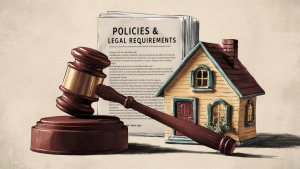
Airbnb Guest: A Host’s Guide to a Memorable Start
Facebook Twitter LinkedIn Reddit Email WhatsApp Welcome Your First Guest on Airbnb: A Host’s Guide to a Memorable Start Welcoming your first guest on Airbnb
Evaluating a real estate deal is a crucial step for any investor looking to make informed and profitable decisions.
Before diving into the specifics of evaluating a property, it’s essential to clarify your investment goals. Are you looking for rental income, long-term appreciation, or a quick flip? Your goals will influence the type of properties you consider and the metrics you prioritize during your evaluation.
Location is one of the most critical factors in real estate investing. A property in a prime location will typically offer better returns. Consider the following aspects when evaluating a location:
A thorough assessment of the property’s condition is essential. Consider the following:

To get a clear understanding of how profitable a property can be, it is important to calculate various financial metrics. These include:
The way you finance a real estate deal can significantly impact its profitability. Consider the following financing options:

Every real estate deal carries some level of risk. Conduct a thorough risk analysis by considering:
| Expense Category | Cost Range |
|---|---|
| Property Acquisition | $100,000 – $500,000 |
| Renovations | $10,000 – $50,000 |
| Marketing Costs | $1,000 – $5,000 |
| Insurance Fees | $1,000 – $5,000 |
| Legal Expenses | $4,000 – $12,000 |
| Business Licenses and Permits | $1,000 – $5,000 |
Finally, consulting with real estate professionals can provide valuable insights and help you make informed decisions. Consider working with:
Evaluating a real estate deal requires market research, property analysis, and financial assessment. By understanding your goals, analyzing the location, assessing property condition, calculating financial metrics, evaluating financing, conducting risk analysis, and consulting professionals, you can make informed and profitable decisions. A systematic approach helps identify opportunities that align with your goals and mitigate risks, leading to a successful investment journey.
“Real estate is the best investment for small savings. More money is made from the rise in real estate values than from all other causes combined.”
– William Jennings Bryan Tweet

Facebook Twitter LinkedIn Reddit Email WhatsApp Welcome Your First Guest on Airbnb: A Host’s Guide to a Memorable Start Welcoming your first guest on Airbnb

Facebook Twitter LinkedIn Reddit Email WhatsApp Mastering Airbnb Policies and Legal Requirements: A Guide for Hosts If you’re considering hosting on Airbnb, understanding the platform’s

Facebook Twitter LinkedIn Reddit Email WhatsApp The Anatomy of a Perfect Airbnb Listing Creating an irresistible Airbnb listing is both an art and a science.

Facebook Twitter LinkedIn Reddit Email WhatsApp Getting Started as a Host on Airbnb: A Step-by-Step Guide Are you considering hosting on Airbnb but don’t know